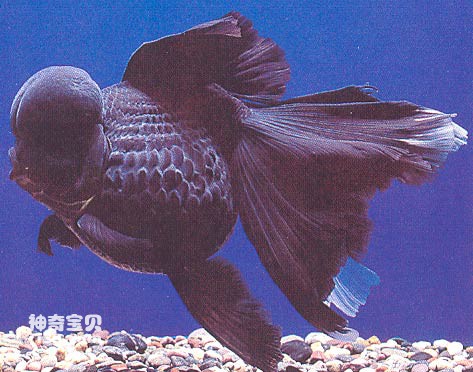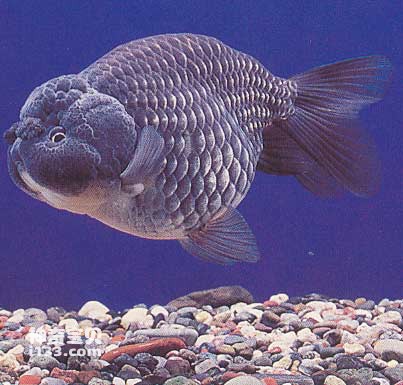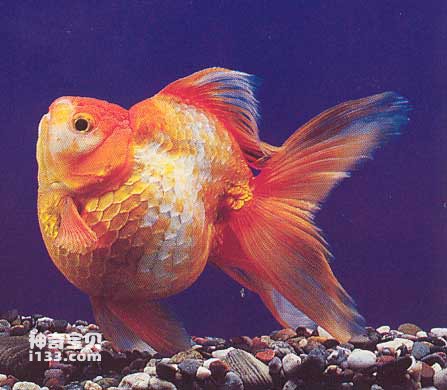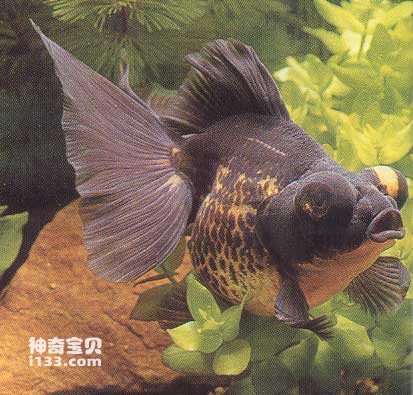Goldfish is the earliest developed ornamental fish in the world and one of the most famous ornamental fish in the world. Goldfish is native to China. The earliest discovery of its ornamental value and breeding can be traced back to the early Song Dynasty. People found wild red crucian carp in natural water bodies, moved them into fish ponds and raised them to breed offspring, and began to select and breed them. After nearly 800 years, through stages such as pond culture and pot (tank) culture, it has gradually become a modern goldfish family with a wide variety of species.

Goldfish strains can be roughly divided into five categories: grass species, literary species, dragon species, egg species and dragon-back species.
1. Grass-type goldfish: also known as golden crucian carp. It is the ancestor of goldfish. It looks like a crucian carp, with a flat, spindle-shaped body, a normal dorsal fin, and a single tail fin.
Grass species are divided into two types, one type is golden crucian carp type with short tail, and the other type is swallow tail type with long tail.

2. Wen species goldfish: Generally, the body is shorter, each fin is longer, the dorsal fin and the tail fin are bifurcated into four; the eyeballs are straight and not protruding. Rare varieties include Hedinghong, Pearl, Tiger Head, etc.
Wen types are divided into six categories: the smooth top of the head is a lancet type; the top of the head has sarcoma, which is dolcecephalic type; the top of the head has sarcoma developed and wraps around the cheeks, and the eyes are sunken into the flesh, which is tiger head type; the nasal membrane is developed and forms double fluffy balls, which is pompomous. type; the gill cover turns over and grows to be the inversion type; the translucent bubbles outside the eyeball are the vesicular eye type.

3. Dragon type goldfish: similar in appearance to Wen Zhong, except that the eyeballs protrude outside the orbit. Since ancient times, dragon species have been regarded as authentic goldfish. There are more than 50 varieties of dragon goldfish, and rare varieties include wind-tailed dragon eyes, black dragon eyes, magpie dragon eyes, agate eyes, grape eyes, bulb eyes, etc.
The red and white dragon species are divided into seven types: the smooth top is the dragon eye type; the head has sarcoma on the top of the head is the tiger head and dragon eye type; the nasal membrane is developed and forms double fluffy balls, which is the dragon ball type; the gill cover is turned over and grows into the dragon eye and gill type ; The eyeball is slightly convex and the head is triangular, which is the shape of a toad's head; the eyeball grows upward to be the shape of a dragon with a flag facing the sky; the cornea of the eyeball is protruding, which is the shape of a lightbulb eye.
4. Egg goldfish: The appearance is quite different from that of crucian carp. The body is short and fat, the eyes are not protruding, and the back is straight without dorsal fin. Rare varieties include red eggs, pom-pom eggs, phoenix eggs, blistered eyes, lion heads, etc.
Egg species are divided into seven types: the short tail is egg fish type; the long tail is egg phoenix type; the head sarcoma is limited to the top, which is goose head type; the head sarcoma is developed and wraps around the cheeks, and the eyes are sunken into the flesh, which is lion head type; The nasal membrane is developed to form double fluffy balls, which is an egg-ball shape; the gill cover of red and black dragon eyes turns over and grows into an open-branch type; the translucent bubbles on the outer part of the eyeball are a vesicular eye type.

5. Dragon-backed goldfish: similar in appearance to egg-type goldfish, except that the eyeballs protrude outside the orbit. Rare varieties include Chaotian Dragon, Dragon Bei, Dragon Bei Bulb Eyes, Tiger Head Dragon Bei Bulb Eyes, Toad Head, etc.
There are seven types of dragon-backed species: the short tail is dragon-backed type; the head with sarcoma is tiger-headed and dragon-backed type; the nasal membrane is developed to form double fluffy balls, which is dragon-backed ball type; the head is triangular, which is toad-backed type; the eyes that grow upward are facing Denon type; the gill cover turns over and grows into a dragon-backed gill type; the cornea bulges into a dragon-back bulb eye shape.
animal tags:
We created this article in conjunction with AI technology, then made sure it was fact-checked and edited by a Animals Top editor.